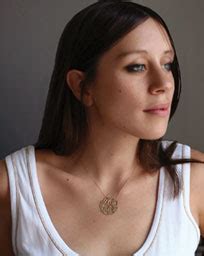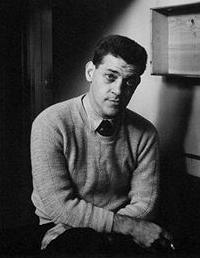A Quote by Paolo Giordano
With a little effort, she could get up by herself
Related Quotes
She emptied herself of Fabio and of herself, of all the useless efforts she had made to get where she was and find nothing there. With detached curiosity she observed the rebirth of her weaknesses, her obsessions. This time she would let them decide, since she hadn't been able to do anything anyway. Against certain parts of yourself you remain powerless, she said to herself, as she regressed pleasurably to the time when she was a girl.
Remembering the ball became for Emma a daily occupation. Every time Wednesday came round, she told herself when she woke up: 'Ah! One week ago...two weeks ago...three weeks ago, I was there!' And, little by little, in her memory, the faces all blurred together; she forgot the tunes of the quadrilles; no longer could she so clearly picture the liveries and the rooms; some details disappeared, but the yearning remained.
He began to trace a pattern on the table with the nail of his thumb. "She kept saying she wanted to keep things exactly the way they were, and that she wished she could stop everything from changing. She got really nervous, like, talking about the future. She once told me that she could see herself now, and she could also see the kind of life she wanted to have - kids, husband, suburbs, you know - but she couldn't figure out how to get from point A to point B.
She had taken him for granted, she thought with surprise and shame, watching the flickering candlelight. She had assumed his kindness was so natural and so innate, she had never asked herself whether it cost him any effort. Any effort to stand between Will and the world, protecting each of them from the other. Any effort to accept the loss of his family with equanimity. Any effort to remain cheerful and calm in the face of his own dying.
It was always the same; other people gave up loving before she did. They got spoilt, or else they went away; in any case, they were partly to blame. Why did it happen so? She herself never changed; when she loved anyone, it was for life. She could not understand desertion; it was something so huge, so monstrous that the notion of it made her little heart break.
It's about waking up. A child wakes up over and over again, and notices that she's living. She dreams along, loving the exuberant life of the senses, in love with beauty and power, oblivious to herself -- and then suddenly, bingo, she wakes up and feels herself alive. She notices her own awareness. And she notices that she is set down here, mysteriously, in a going world.
Later she sat on the ground in the forest between school and home, and spring was so bright and beautiful, the warm air touched her so tenderly, she could almost feel herself changing into a flower. Her light dress felt like petals. "I love everything," she heard herself say. "So do I," a voice answered. Pearl straightened up and looked around. No one was there.





































